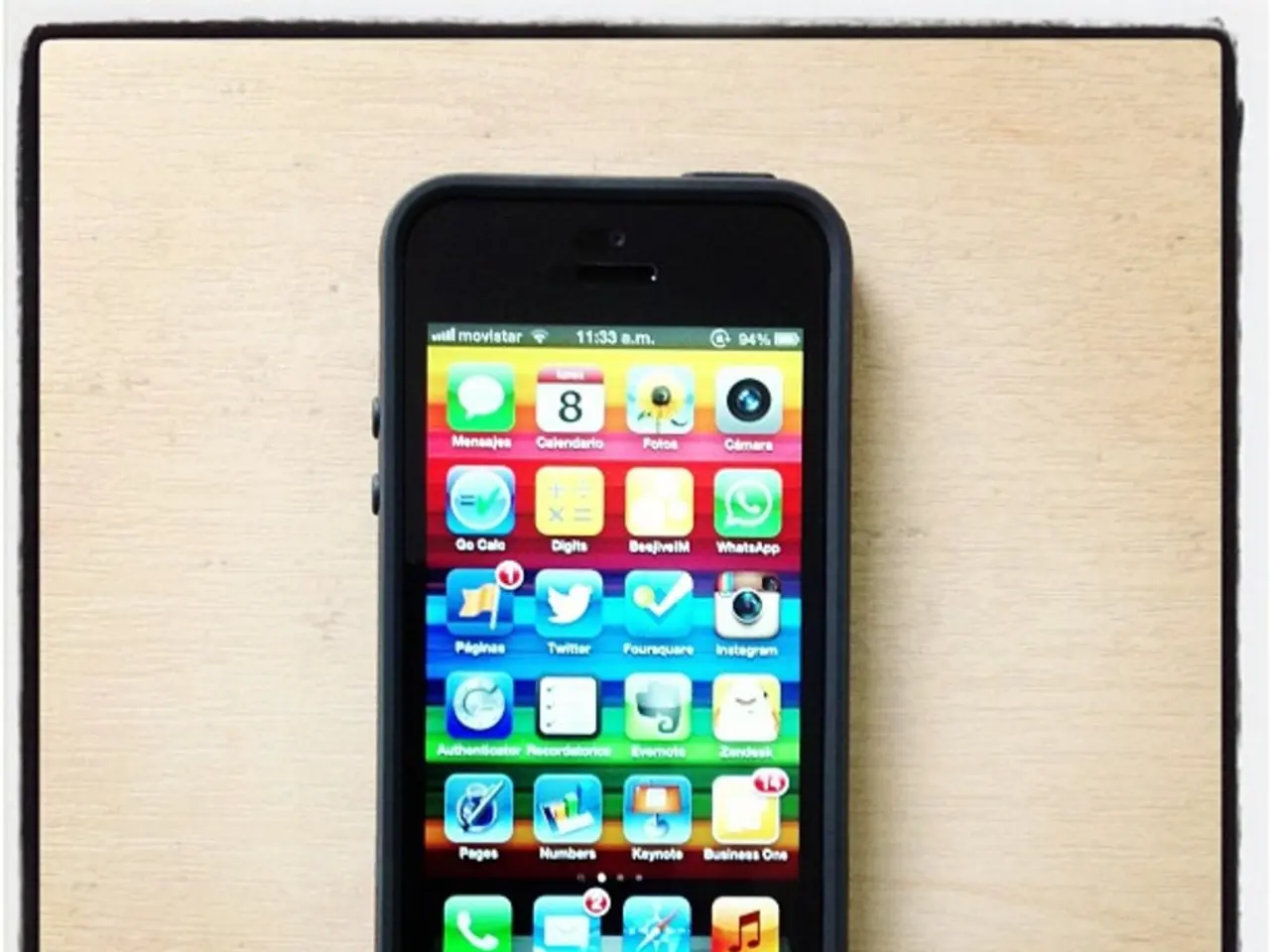Shut down your smartphone at night - not because of radiation concerns. - Mobile Devices Should Be Switched Off at Night - Not Due to Radiation Emission
Disconnecting Your Smartphone: A Game Changer Before Hitting the Sack
By Malte MansholtRead Time - Approx 2 mins
We all know that post-dinner struggle: You're settled into bed, but the pull of your smartphone keeps you awake. Why not put an end to this nightly tussle? Here's why we recommend shutting down that phone completely before dozing off. It's not just about minimizing radiation exposure - it's about tackling tangible issues.
Sure, radiation emission isn't a walk in the park. When your phone is on, it's emitting, even while you dream. It's unraveling updates, vetting new messages, or uploading backups to the cloud, all while you're in slumberland. However, long-term studies by the Federal Office for Radiation Protection (BfS) assure us that radiation from smartphones doesn't present any discernible health hazards[1]. But avoiding radiation is better, always.
Say No to That Phone First Thing In the Morning
The psychological factor is more critical: If your phone is within reach, it'll cross your mind. A study from the University of Paderborn demonstrates that merely having the phone on the table elevated the participants' anxiety levels - whether they had a smartphone addiction or not[2].
So when you turn off your smartphone and keep it away from your nightstand, you're less likely to grab it and get sucked into its digital vortex as soon as you wake up. Rebooting your device signifies a personal signal to yourself: Time to wind down and disconnect from constant availability emblematic of the phone.
The same applies when you start your day: When the phone needs to rev up before you can check messages, you'll use that time for something more grounding, like brewing your morning coffee. This gives your brain more time to unwind before having to face the demands of the outside world.
Shutting Down Your Smartphone at Night: Technological Advantages too
Turning off your smartphone at night carries technical benefits as well. Smartphones are just mini computers, after all, and they could use a reboot once in a while. Over time, the operating system and applications installed can glitch. Powering off your device every day helps sidestep many potential problems. Plus, it allows necessary security updates to be installed.
And let's not forget about conserving energy: Every moment your device is on, it's consuming juice. Power consumption is particularly high even when your device is in airplane mode. Turning off your smartphone completely inhibits this power consumption.
Not only does this save you battery life for the day, but it also impacts the longevity of your battery. Each charge cycle stresses the battery, causing degradation over time. By preserving battery life during the wee hours, you're stretching out the lifespan of your device.
Enrichment Insights: The Multidimensional Benefits of Shutting Down Your Smartphone
- Reduced anxiety and depressive symptoms: intensive smartphone and social media usage, particularly before bed, is linked to a higher risk of mental health issues, such as anxiety and depression. abstaining from the device before nodding off helps lessen exposure to stressful content, social media pressures, and cyberbullying[3][5].
- Enhanced sleep quality: smartphones emit blue light that suppresses melatonin production, crucial for falling asleep. By shutting down the phone, you eliminate blue light exposure during the night, boost melatonin levels, and foster a more restful sleep experience[1].
- Decreased eye strain and physical discomfort: lengthy screen time promotes eye strain and awkward posture. disconnecting before sleep enables eyes and body to rest and recuperate.
- Better sleep duration and quality for adolescents: research indicates that adolescents who exclude smartphones from their bedrooms enjoy the recommended sleep duration essential for wholesome brain development, whereas those who keep smartphones nearby suffer sleep deprivation[5].
The Commission is also proposing to extend the scope of the programme to include the areas of gadgets and technology, focusing particularly on smartphones. This expansion aims to promote healthier habits in the use of these devices, especially during sleep hours, considering their impact on sleep quality, anxiety levels, and overall well-being.




